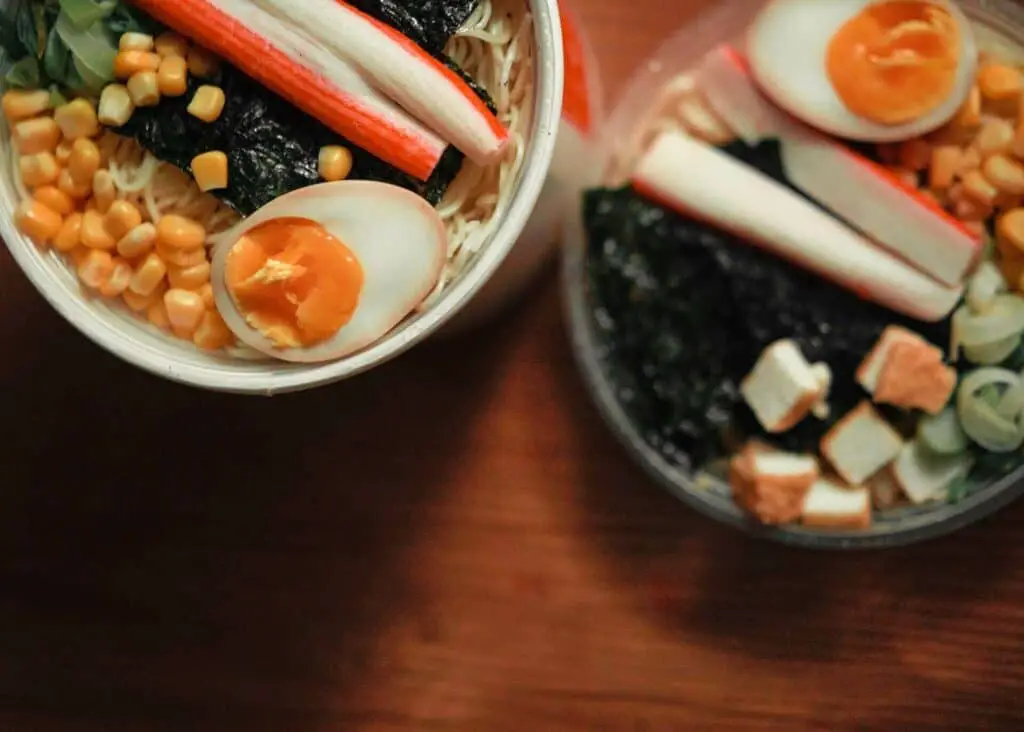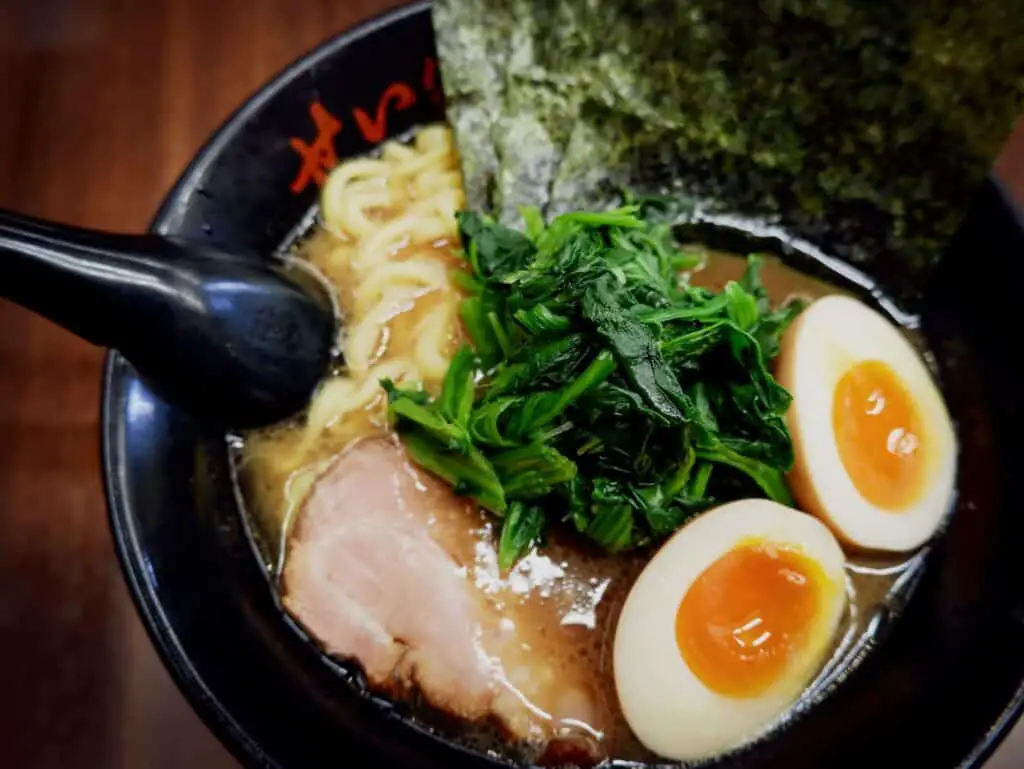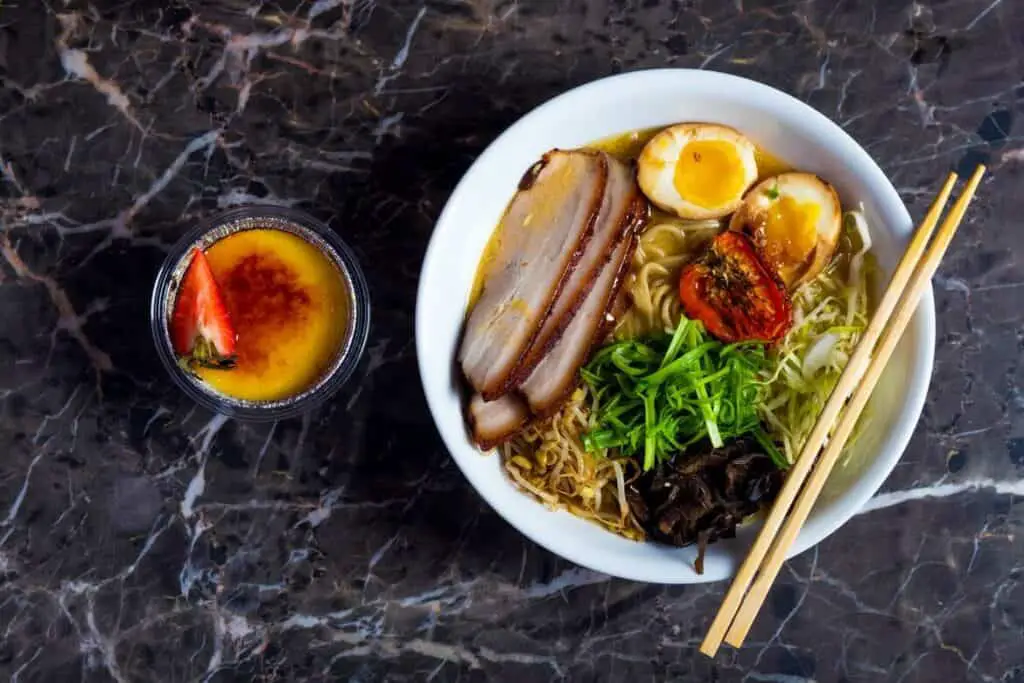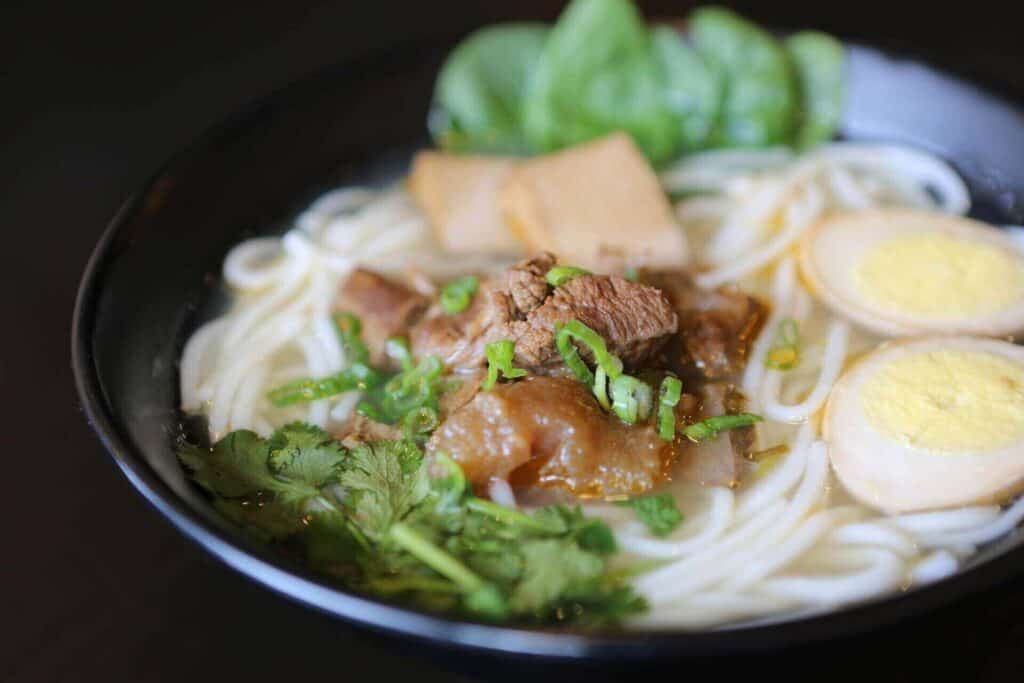If you are a fan of Japanese cuisine, you have probably encountered ramen. This popular Japanese dish comes in various different types and styles with numerous toppings. However, if you’re not familiar with the dish, you might come to think – does ramen have eggs? Today’s article will explain everything you should know about the lovely relationship between ramen and eggs.


Ramen could have an egg, but it depends on the recipe. Ramen and eggs go hand in hand and are an extremely popular food combination in Japanese cuisine. Although eggs do make ramen taste super delicious, you don’t have to put them in if you are not a fan, as the dish can come with a variety of different toppings.
Traditional Ramen Commonly Includes Eggs but Doesn’t Have To
Ramen is a traditional Japanese dish made of steaming broth, delicious ramen noodles, and a wide variety of different toppings. Broth and noodles are considered to be the basis of every ramen soup, but the dish has numerous variations.
Various regions in Japan, as well as the rest of the world, have created their own versions that tried experimenting with the traditional formula. Eggs are considered to be one of the main ingredients on the long list of common toppings for ramen, and the majority of people use them for the preparation of ramen.
However, that doesn’t mean that every type of ramen soup will include eggs, as that depends on regional varieties and different cooking styles. However, most believe that ramen and eggs go hand in hand and are an incredible culinary combination. Plus, you can also use different methods of including eggs into the dish by preparing the egg differently.

You Can Prepare Eggs for Ramen in Many Different Ways
Because eggs are a common ingredient in ramen, Japanese cuisine came up with different ways of preparing eggs for this dish. While you already know that an egg can be prepared in numerous ways, such as boiling, scrambling, and frying, Japanese cuisine has a bit of a different take on preparing eggs for this delicious meal.

Ajitama and Nitimago Are Two of the Most Common Ways of Preparing Eggs for Ramen
The names Ajitama and Nitimago probably don’t sound very familiar to you. Unless you are an extreme lover of Japanese culinary traditions, you would never guess that these are names for different types of cooking methods. Ajitama is a marinated ramen egg, famous for its seasoned flavor, and is a popular ramen topping.
This seasoned egg is boiled for a few minutes in salty water with vinegar until it reaches a perfect consistency. Nitimago, on the other hand, is a simmered egg that looks quite similar to Ajitama but has a different flavor and is prepared differently. The table below might make understanding the main differences between these two types of eggs easier.
| Ajitama | Nitimago | |
| How to flavor? | You marinade the eggs in a bowl and leave it in the fridge | Once you flavor the egg, you immediately simmer it |
| State of the yolk | Ranges from a soft-melted yolk to a half-boiled egg | A hard-boiled egg |
| Serving temperature | Cold or at room temperature | Usually hot |
| Dish it goes well with | Great with ramen soups | Served with soups but also simmered pork, chicken, and daikon |
Which Types of Ramen Comes With Eggs?
As mentioned above, some types of ramen include eggs, and some don’t. There are numerous ways you can prepare ramen and ways you can include eggs into it. Suppose you really wish to try out ramen with eggs. In that case, we recommend you try out some of these next few popular types of ramen:
- Wakayama ramen – originally created on Shikoku Island, this ramen includes a shoyu-style broth. The broth is topped with a raw egg and served with onions, fish cakes, char siu, and menma. It is more popular in China than in Japan.
- Abura Soba – also known as oil noodles, Abura Soba is usually made with egg yolk, nori, scallions, chashu, chili oil, and ground pork. It has a very strong flavor to it.
- Sapporo ramen – this is one of the most popular types of ramen in the Hokkaido region. It comes with hard-boiled eggs, bamboo shoots, green onions, and different types of vegetables, such as cabbage and corn.
- Tokyo-style ramen – often celebrated for being the original ramen, this soup includes chicken and pork bones, soy sauce, and thick noodles. The toppings usually include soft-boiled eggs, bamboo shoots, spinach, seaweed, scallions, and char sui.
Do Ramen Noodles Include Eggs?
Suppose you are a vegetarian or a vegan, worrying whether you can eat ramen noodles because of eggs. Traditionally, ramen noodles are not made with eggs. The basic Japanese noodles are made with hot water, kansui, and wheat flour.
There are no eggs included in the most traditional version of ramen noodles. However, some types of them do put in eggs. Depending on whether they are real ramen or noodles, they can have a different consistency. If you are buying noodles from a local store, you can always check the ingredients to ensure they are completely vegan.

Play Around and Explore the Beautiful Versatility of Japanese Cuisine
Since Japanese cuisine is so diverse, we highly recommend exploring it in all the ways you can. Introduce yourself to some new recipes, different techniques, and styles. From this simple example, you were able to see that Japanese cuisine can include one single ingredient in many different ways in order to create various dishes. If you wish to try and explore Japanese cuisine, freely choose to be playful and try out different styles.
